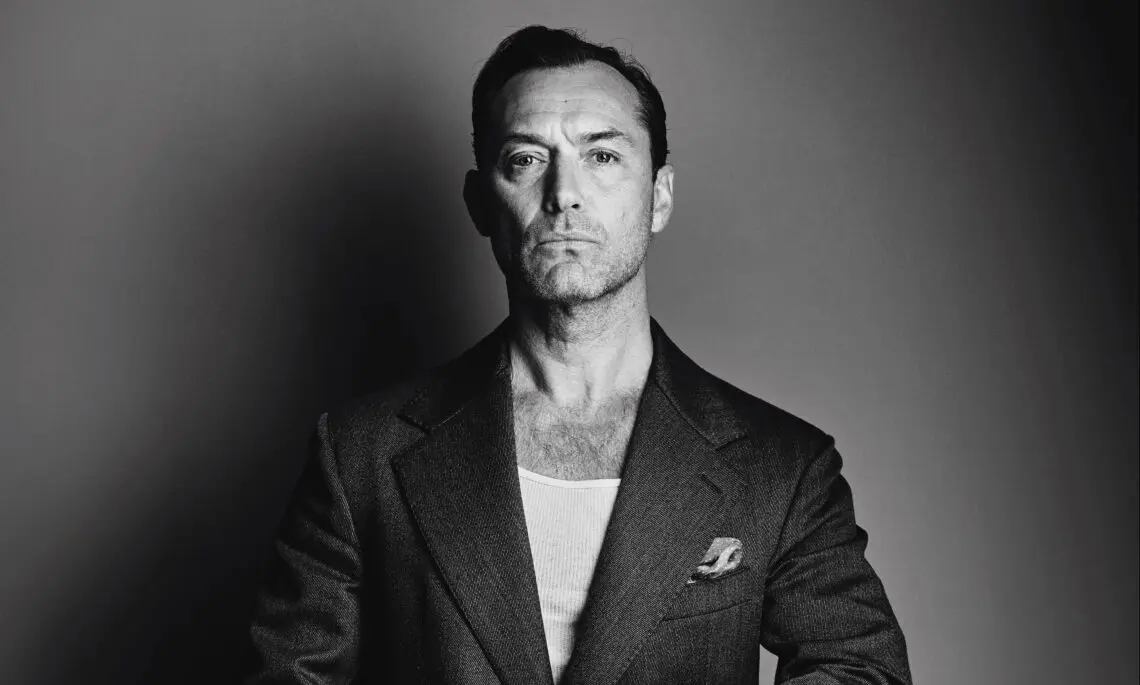In the ranks of actors piqued by Chris Rock at the Oscars, Will Smith has probably forever claimed first place. But 20 years ago, Jude Law took more of a stiff-upper-lip approach to some undue mockery from the comedian. “If you want Tom Cruise and all you can get is Jude Law, wait! It’s not the same thing,” cracked Rock in his opening monologue at the 2005 Academy Awards. “Who is Jude Law? Why is he in every movie I have seen the last four years?” Later in the ceremony, presenter Sean Penn came earnestly to Law’s defense: “I did want to answer our host’s question about who Jude Law is. He’s one of our finest actors.”
In subsequent interviews, Law admitted to feeling hurt by Rock’s remarks. He was, after all, already a two-time Oscar nominee at that point, for “The Talented Mr. Ripley” and “Cold Mountain.” He had racked up credits with Steven Spielberg, Clint Eastwood and Martin Scorsese. What more could he do to prove himself?
Two decades on, Law can probably afford to laugh off the memory, for Penn’s words have aged somewhat better than Rock’s. And on Dec. 12, the actor will receive one of Hollywood’s highest honors — a star on the Walk of Fame. Now on the other side of 50, the British star is still among the best, most hard-working thespians in the business, having aged into a versatile, vanity-free character-actor groove that suits him well. There’s little throughline between his most recent big-screen roles — as a careworn anti-fascist FBI agent in Justin Kurzel’s “The Order,” as an intrepid German survivalist in Ron Howard’s “Eden,” as a boorish, abusive Henry VIII in Karim Aïnouz’s “Firebrand” — beyond his unwavering actorly commitment and onscreen intensity.
Popular on Variety Law in “Firebrand” is particularly transformative. Laden with oozing prosthetic wounds and adopting a stooped, gammy gait as the notorious wife-killing monarch, he’s scarcely recognizable as the gleaming Adonis undone by his own enviable perfection in “The Talented Mr. Ripley.” Or, indeed, the gleaming Adonis who undid Stephen Fry’s Oscar Wilde in the 1997 biopic “Wilde,” or the gleaming Adonis whose genes Ethan Hawke steals in “Gattaca.” No standard-issue heartthrob, Law began his career as a veritable emblem of intimidating, unattainable, sometimes self-sabotaging male beauty.
That can be a tricky position to age from in a surface-oriented industry, but Law has always shown a willingness to subvert and interrogate his onscreen image. He was literally too handsome to be real in his witty, poignant turn as an android sex worker in Spielberg’s sci-fi Pinocchio riff “A.I. Artificial Intelligence,” while he sent up his Golden Boy persona to brutally emasculated effect in David O. Russell’s chaotic satire “I Heart Huckabees.”
Law can play a straightforward dreamboat to perfectly charming effect too (see Nancy Meyers’ “The Holiday” and Charles Shyer’s “Alfie”) but the more self-searching the character, the more alert and intriguing his performance. Lately, he’s balanced mainstream franchise duty — the “Fantastic Beasts” series, “Captain Marvel,” and now heading up the Disney+ “Star Wars: Skeleton Crew” spinoff — with more unpredictable tonal pivots.
But it was as a wealthy London family man concealing a world of class insecurity and self-delusion in Sean Durkin’s 2020 psychodrama “The Nest” that Law gave his greatest, most intricately folded performance to date: an enactment of alpha masculinity humbled by cold reality that brought all the eras of the actor’s career together in one shattering,
surprising whole.
Who is Jude Law, you ask? We’re still finding out.
Tipsheet
What: Jude Law receives a star on the Hollywood Walk of Fame
When: Dec. 12, 11:30 a.m.
Where: 6840 Hollywood Blvd., Hollywood
Web: walkoffame.com

 Italian
Italian







